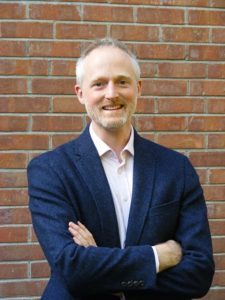Birmingham and Black Country social enterprises urged to bid for funding.
Social enterprises in Birmingham and the Black Country are being encouraged to apply for their share of the final round of The Social Enterprise Support Fund, which opens for applications at 10am today.
More than £4 million of support is still available as part of the fund, which was established in partnership by The National Lottery Community Fund and delivered through five support agencies, including Big Issue Invest, The Key Fund, Resonance to Community Land & Finance CIC (also known as Resonance), the School for Social Entrepreneurs and UnLtd with support from CAF Venturesome, the Young Foundation and Ashoka.
In excess of £14 million is in the process of being awarded to 400 social enterprises across England with the remaining money in place to help social ventures weather the ‘perfect storm’ they face from Covid-19, increased demand for their services, a global recession and the end of short-term Government support.
Eligibility has also been widened for the last round of the fund to include organisations with an annual income of between £20,000 and £1.8 million, with grants ranging from £10,000 up to £300,000.
Daniel Brewer, CEO of Resonance (pictured), commented: “From the first two rounds of funding we have seen applications from a diverse range of enterprises in Birmingham and the Black Country, who were in critical need of funding to help them recover from COVID-19.

“Their commitment, passion and energy to adapt and react to this crisis, whilst continuing to deliver essential services to their communities and the most vulnerable in society, really has been an inspiration to us.”
He continued: “This is the final opportunity to apply to the fund, so therefore we are encouraging all enterprises who qualify and require financial support to apply as soon as possible.”
According to recent research, a quarter of social enterprises in the UK have cash flow for just three months or fewer. As the furlough scheme and other short-term support ends, four in ten social enterprises say the outlook for their business over the next six months looks uncertain.
With this in mind, it is no surprise that The Social Enterprise Fund has so far received nearly 900 applications and, by 8th September, had agreed to support over 400 social enterprises across England.
It has also made a commitment to ensuring that the grants reach enterprises that are led by people most impacted by Coronavirus, with more than 70% of those funded to date being organisations who are using the money to keep critical services running or are transitioning to dealing with life during Coronavirus.
There have been more than 35 successful applicants in the West Midlands over the first two rounds and this includes Birmingham-based Citizen Coaching and Challenge Academy in the Black Country.
The latter provides affordable and accessible outdoor learning opportunities for marginalised communities, with its latest funding bid helping it deliver a new life-changing experiential learning course designed to support participants to develop resilience and a growth mindset.
Mel Ellis, founder of Challenge Academy, concluded: “Covid-19 has been tough, there’s no doubt about that. However, social enterprises thrive on a challenge and continually reinventing themselves and we have done just that by launching a Summer Boot Camp for young people and will be looking at something similar for companies looking at team building exercises outdoors.
“We have spent lockdown creating a revised Bags of Character Facilitator’s Manual to accommodate social distancing and 80% of the BOC activities can now be undertaken and positive outcomes achieved whilst keeping people safe.
“Individual exercises have also been added to address mental toughness and linked these to MTQ48, an accurate test to measure Mental Toughness and distance travelled.
“The Social Enterprise Support funding will be used to deliver 30 Bags of Character and associated training to crucial organisations across the Black Country that will be instrumental in building communities after the COVID pandemic.”


